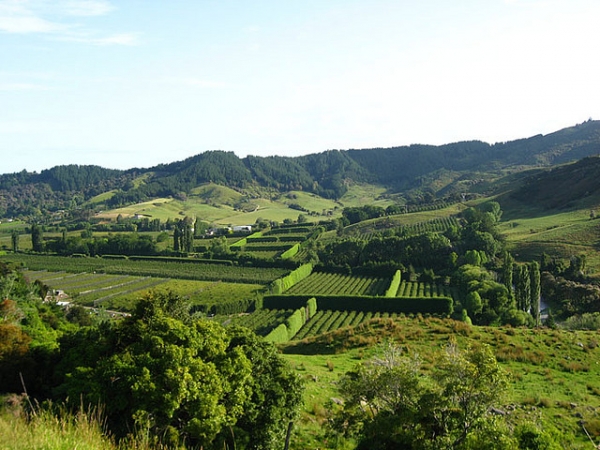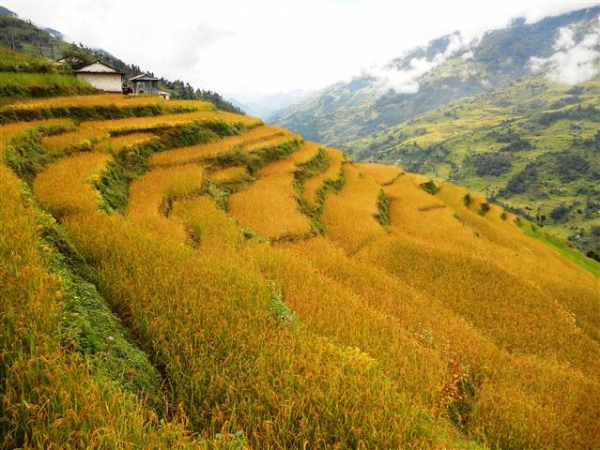Nu pierdeți cele mai bune locuri de muncă!
Abonează-te și săptămânal iți vom trimite un email cu ultimele locuri de muncă disponibile. Introdu adresa ta de email mai jos
Volunteering abroad can be a daunting and problematic goal to pursue. Saving up, acquiring visas, working out a place to live, and adjusting to a foreign culture are only some of the difficulties, not to mention finding the right place to give your time. WWOOFing takes care of so many of these problems, and it is one of the easier volunteering gigs to acquire thanks to the website and the other members that have contributed their input. The internet is overflowing with blogs and articles offering advice, tips, and even specific farms to consider, and the organization does its best to offer you as many options as possible while monitoring each farms authenticity. The idea of working for months or years to save up for a big trip can be a complete deterrent, especially when considering visiting a more expensive country. But with a small fee, a bit of research, and a good application, you can be volunteering abroad for the price of a plane ticket and a little spending money.
Organic farming is becoming more and more popular, and learning how to grow food the good old fashioned way is a useful skill to have in the event of a zombie apocalypse, or just for your own well-being. Some WWOOF farms go beyond organic and practice permaculture, which is a complex yet slightly convoluted term that I won’t try to dive into here, but in its simplest definition is the use of tools, techniques, and practices that mimic natural systems (for more information, I suggest checking out Michael Pollan’s TED talk on the subject). Some host farms on the various websites are not organic or sustainable, and many are looking for workers willing to do various household chores rather than engage in the farm. The basic trade of labor for housing is still a great way to live abroad for awhile, but landing a job at a farm that’s dedicated to alternative practices can be an incredible learning opportunity, and is a true WWOOF experience.
There are about 88 countries on the WWOOF website with over 6,000 hosts looking for exchange. Wherever your heart desires to explore will most likely be on the list, but below are five countries with host farms known to be dedicated to organic, sustainable farming.
New Zealand
Many people will look into WWOOFing in Australia, a country known to be difficult to travel in without a job because of high prices. But New Zealand, although smaller, is a stunning country with a ton of opportunities. Although WWOOFing is technically a volunteering gig, the immigration department considers it a work exchange, so work visas are required. The work season tends to align with the growing season, when the most hands are needed, but in the winter months there are still some opportunities for helping with other tasks.
Portugal
There are about 150 WWOOF hosts in the country of Portugal. Although the main language spoken in the country is Portuguese, most farms will have English speakers living and working on them. The WWOOF Portugal website has information on courses around the country about permaculture design, composting, and other sustainable practices, which is a big plus for people looking to really dig into the heart of WWOOFing.
Costa Rica
If rainforests are more to your liking than traditional pastoral farms, Costa Rica might be a good option. The country is known to be particularly stable and progressive and they rank higher than their bordering countries in terms of equality and human development. They were also the highest ranking country in the Americas on the 2012 Environmental Performance Index, meaning that environmental sustainability is a big deal in the country. Some countries in Latin America have a reputation of low-quality WWOOF farms, but Costa Rica stands out above them all. Organic farming Plus, working with tropical species you may not have encountered before can be an experience you won’t find elsewhere.
Nepal
China is another big hit on the list of must-see countries, but the cost of living can be a problem. An alternative country is Nepal, which lies to the south of China and north of India. The outstanding Himalayas take up the majority of Nepal, but there’s still plenty of farming. There are multiple groups, websites, and organizations dedicated to organic farming and permaculture based out of the country and it isn’t hard to get involved in volunteer projects around the country. Tourist visas are sufficient for WWOOFing in Nepal and they are issued upon arrival to the country.
Ireland
Ireland is a country known for its rolling green hills of pasture land, and farming has been a big industry in Ireland for centuries. Organic practices are rapidly growing. There are 488 hosts in the country, and your search can be narrowed down between the four regions of Ulster, Connacht, Leinster, and Munster.
For visitors from countries within the EEA (European Economic Area), no visa is required. For visitors from other countries, requirements for entry vary, but WWOOFing is technically considered volunteering, so a general tourist visa is enough.
It can be hard to get your feet out the door and travel, but getting involved in WWOOFing around the world can make it a much easier and more fulfilling process. The experience of getting to know another country through volunteering is worth the work. It can be nearly impossible to truly get to know a foreign place when you’re just jetting through, and being a contributing member of a community from the get go will plunge you right in.
Sign in to publish a comment


Be the first to comment on this post.